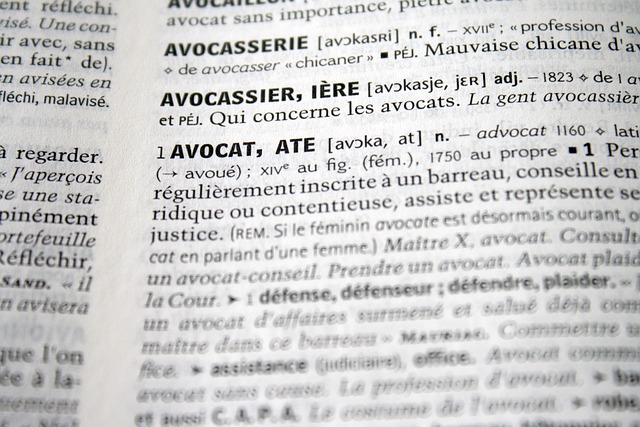DUI laws vary significantly between rural and urban areas, with stricter regulations and harsher penalties in cities due to higher crime rates and more resources, versus less stringent rules and limited legal aid in rural regions facing lower crime densities and budget constraints. Accused drivers need tailored guidance from specialists familiar with local laws and unique circumstances, especially regarding access to affordable DUI legal services. Rural areas may face stricter DUI penalties as deterrents but also have dedicated organizations providing crucial legal aid; urban centers offer alternative sentencing options alongside stiffer penalties, with more abundant affordable services available.
In the realm of driving under the influence (DUI) laws, a stark contrast exists between rural and urban jurisdictions. This article delves into the disparities that shape sentencing, fines, and legal defenses in these distinct environments. Understanding these variations is crucial for those seeking affordable DUI legal services, as it can significantly impact outcomes. From basic legal breakdowns to strategies for navigation, this guide highlights the importance of location-specific knowledge in mitigating potential consequences.
- Understanding DUI Laws: A Basic Breakdown
- Urban vs Rural: The Jurisdiction Disparity
- Impact of Location on Sentencing and Fines
- Affordable Legal Aid: A Lifeline for All
- Navigating the System: Strategies for Defense
Understanding DUI Laws: A Basic Breakdown

DUI laws vary significantly between rural and urban areas, with distinct implications for those charged. Understanding these differences is crucial for anyone navigating the legal system. In general, DUI (or driving under the influence) laws aim to protect public safety by deterring individuals from operating vehicles while impaired. Key elements typically include blood alcohol concentration (BAC) limits, penalties for violation, and legal defenses available to accused drivers.
While urban areas often have stricter enforcement policies, with more police patrols and advanced technology for BAC testing, rural regions may have fewer resources and less stringent regulations. This can lead to variations in charges, potential penalties, and the availability of affordable DUI legal services. As a result, individuals facing DUI accusations should be aware of these disparities and consider seeking expert guidance from legal professionals specializing in such cases, ensuring they receive tailored support that accounts for local laws and specific circumstances.
Urban vs Rural: The Jurisdiction Disparity

In urban areas, where high population density is a defining feature, law enforcement agencies have extensive resources at their disposal. This often translates to more stringent DUI (Driving Under the Influence) laws and stricter penalties. Urban jurisdictions tend to allocate significant budgets for police operations, allowing for increased patrols and advanced technology to combat drunk driving. As a result, drivers in urban settings may face harsher consequences for DUI offenses, with stricter license suspensions, heavier fines, and longer jail sentences.
In contrast, rural regions present unique challenges for law enforcement due to lower population densities and limited resources. These factors can lead to fewer patrols and less advanced enforcement strategies. Consequently, DUI laws in rural areas might be more lenient, with varying sentence severities and legal defenses available. Individuals seeking affordable DUI legal services may find different approaches and outcomes when navigating these jurisdiction disparities, emphasizing the need for tailored legal representation tailored to each region’s unique legal landscape.
Impact of Location on Sentencing and Fines

In rural areas, where populations are often smaller and less diverse, courts may take a different approach to sentencing compared to urban centers. The impact of location on DUI laws is significant; rural communities might have stricter penalties as a deterrent due to lower crime rates and tighter budgets for law enforcement. This can result in heavier fines and longer sentences for offenders, especially if there’s a perception of a lack of resources to deal with repeat offenders.
On the other hand, urban areas, with their higher crime rates and more extensive legal services, might offer alternative sentencing options, such as community service or rehabilitation programs, alongside stiffer penalties. Affordable DUI legal services are readily available in cities, ensuring that individuals have access to representation and support during these challenging times. These varying approaches reflect the unique challenges faced by rural and urban jurisdictions in addressing DUI-related issues.
Affordable Legal Aid: A Lifeline for All

In rural areas, access to affordable legal aid for DUI cases can be significantly limited compared to urban centers. This gap often leaves individuals facing severe consequences without adequate representation. However, there are dedicated organizations and initiatives that provide crucial legal services tailored to the unique challenges of rural communities. These efforts ensure that everyone, regardless of their location, has a chance to navigate the complex legal system fairly.
Affordable DUI legal services play a pivotal role in protecting the rights of those accused. They offer much-needed guidance, helping individuals understand their options and make informed decisions. With skilled attorneys by their side, rural residents can challenge evidence, negotiate plea deals, or mount robust defenses, ultimately mitigating potential penalties and ensuring a fair trial.
Navigating the System: Strategies for Defense

Navigating the legal system after a DUI arrest can be overwhelming, especially in rural areas with limited legal resources. Those living in urban centers often benefit from a denser network of affordable DUI legal services, making it easier to connect with experienced attorneys who specialize in these cases. In contrast, rural communities might face challenges in accessing prompt and quality legal assistance due to reduced lawyer availability and potential longer court processes.
Strategizing for defense is crucial regardless of the setting. For those seeking affordable DUI legal services, exploring local support groups, non-profit organizations, or public defenders can be a starting point. Additionally, understanding state-specific laws and their implications is vital. By staying informed and proactive, individuals facing DUI charges in rural or urban areas can better prepare for their case outcomes and ensure they receive the representation that aligns with their unique circumstances.
In conclusion, while rural and urban areas face distinct challenges regarding DUI laws, understanding the jurisdiction disparity and access to affordable DUI legal services are key to navigating these differences. Rural residents may benefit from a more lenient sentencing approach, but they often face limited access to legal aid. Urban areas, with their dense populations, might have stricter laws and higher fines, yet they typically offer more resources for legal defense. Regardless of location, seeking affordable DUI legal services can significantly impact the outcome of a case, emphasizing the importance of proactive measures for those facing DUI charges.






